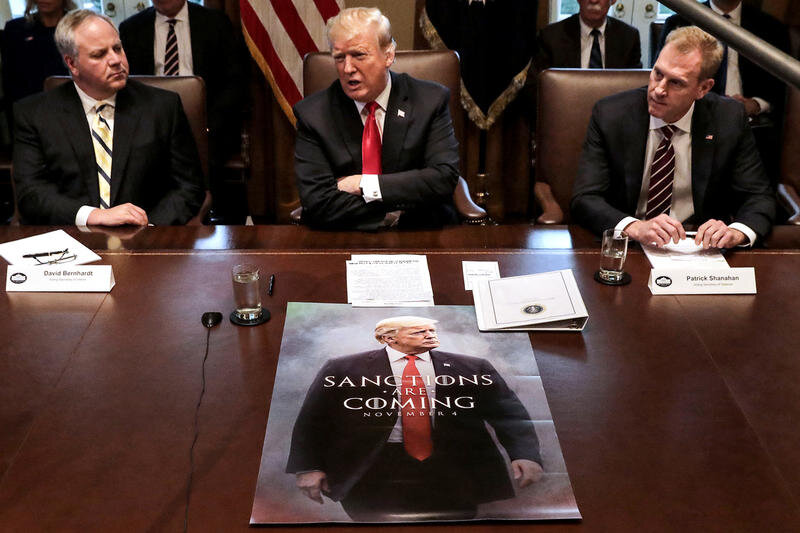Trump’s sanctions on Iran block way for any kind of dialogue: professor

TEHRAN – A professor of political science and international relations at the University of California believes that U.S. President Donald Trump’s sanctions on Iran block the way to any negotiation and diplomacy.
“Trump's decisions are taking place at the moment and are very stupid. His decisions complicate the situation and will block the way for any kind of dialogue and constructive engagement or other agreement between Iran and the United States,” Ronnie Lipschwitz told the Iran Labor News Agency in an interview published on Wednesday.
The Trump administration took the unusual step in late July of placing sanctions on Iran’s Foreign Minister Mohammad Javad Zarif, essentially cutting off the clearest avenue for talks with Iran by punishing the man who negotiated the 2015 nuclear agreement.
Zarif is an American-educated diplomat who is well connected throughout the United States.
“The United States and the government of Donald Trump do not care about how sanctions and strict laws can affect the lives of ordinary people and children who now more than ever, given [the early 2019] flood in Iran, need global help,” the University of California professor Ronnie Lipschwitz says.
Elsewhere in the interview, Lipschwitz pointed to America’s other sanctions on Iran, calling them a violation of human rights. “Washington's policy does not commit human rights whenever it comes to its rivals,” he observed.
“Washington constantly accused Iran of violating human rights, while, in my opinion, Saudi Arabia was the main accused of human rights abuses in recent years. But the United States does not care about this because it is talking about a friend of America, Saudi Arabia.”
“The United States and the government of Donald Trump do not care about how sanctions and strict laws can affect the lives of ordinary people and children who now more than ever, given [the early 2019] flood in Iran, need global help.”
The heavy floods inundated more than two-thirds of the country in March and April. Floods drove hundreds of thousands of people homeless and caused an estimated $2.5 billion in damage to roads, bridges, homes and farmland.
While U.S. Secretary of State Mike Pompeo claimed at the time that Washington was ready to help via the Red Cross and the Iranian Red Crescent Society (IRCS), the IRCS said no foreign cash help had been given to the society due to the sanctions.
Lipschwitz added, “I believe that Trump will not make these decisions alone; He is heavily influenced by Netanyahu.”
He went on to say, “Trump has repeatedly referred to Iranian missile tests to justify his actions, but I say that instead of worrying about Iran's missiles, Trump should be concerned about the widespread stockpiles of nuclear weapons in Israel.”
Under the nuclear deal, Iran agreed to put limits on its nuclear activities in exchange for termination of economic and financial sanctions.
However, Donald Trump withdrew the U.S. from the UN-endorsed JCPOA in May 2018 and imposed the toughest ever sanctions against Iran in line with his administration’s “maximum pressure” policy against Tehran.
The remaining parties, particularly the European sides, have failed to honor their commitments since the U.S. reimposed the sanctions.
Netanyahu is one of the four people enlisted in the B-Team by Zarif. The other members of the team are White House national security advisor John Bolton, Saudi Crown Prince Mohammed bin Salman, and UAE Crown Prince Mohammed bin Zayed, all of whom, the Iranian foreign minister has said, are unified in an anti-Iran agenda which pushes Trump towards the harshest-possible confrontation with Iran.
SP/PA
Leave a Comment